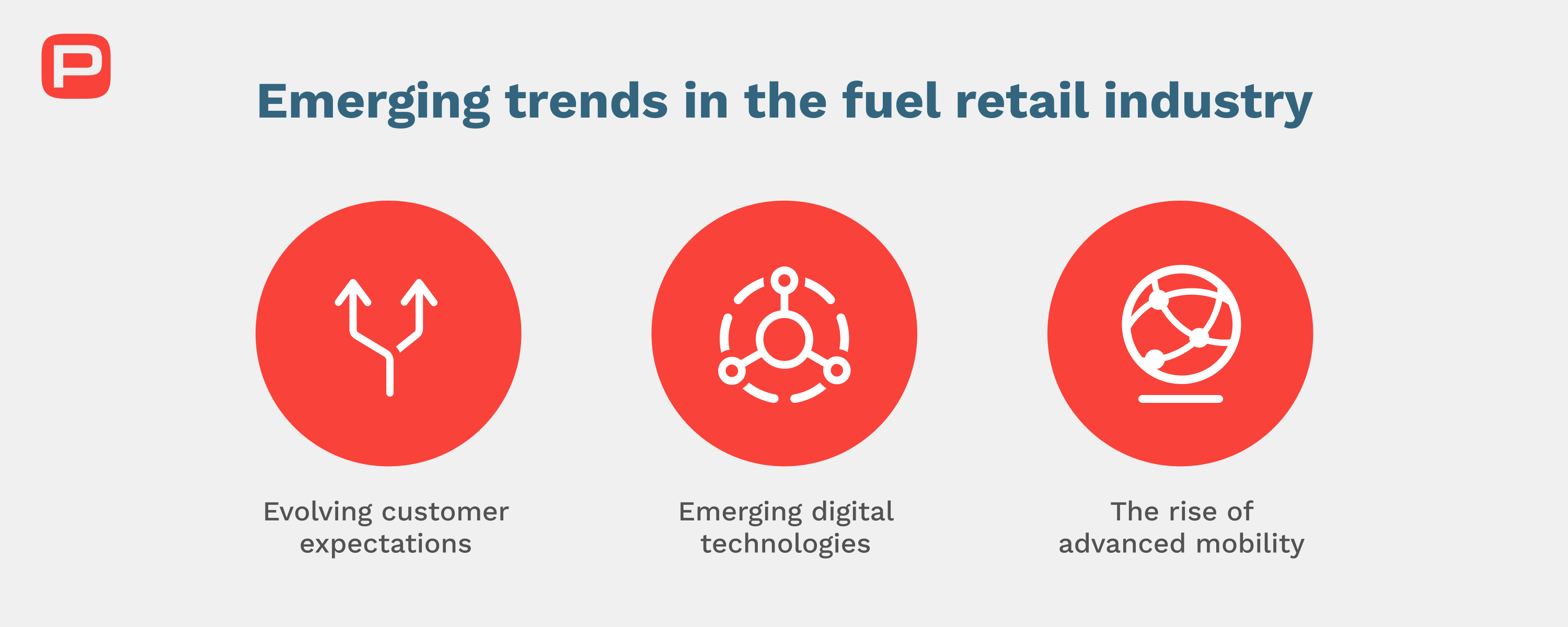The market is shifting and your customers have gone through a major behavioural change since COVID-19, but how can you adapt your forecourt to meet them where they’re at? It’s time to relook at your service station’s business model, strategy and branding. In this article, we unpack some of the latest research around the current forces of change in the fuel retail industry and unpack how you can adapt your fuel station in order to become more customer-centric and more resilient.
Over the past 2 years, customer behaviour has shifted dramatically indicating that in order to improve the customer experience three emerging trends in the market need to be addressed. A recent fuel retail trend study conducted by Deloitte uncovered these emerging trends to be:
Evolving customer expectations.
Emerging digital technologies.
The rise of advanced mobility.

Consumer attitudes have been re-shaped by other retail and service providers bringing us to a place where consumers now expect that the companies with whom they do business will know their preferences and buying patterns and will be ready with personalised offers. This level of experience has become essential for brand loyalty across all retail outlets, not just the fuel retail industry.
Loyalty programmes are beginning to cross over to various sectors so that customers experience the benefits of their reward programmes from a single company across various activities they do in their day-to-day lives and since petrol prices are regulated, it’s important that fuel retailers differentiate themselves in other ways including partnering with other companies who offer loyalty programmes.
Digital is the new normal and if you’re not working toward aligning with your consumers, you are getting left behind. Integrating technology into your business will ensure that you are more in touch with what your customers want and are giving them a simple experience. For example, retailers can now take advantage of data and analytics to deliver personalised offers to consumers, and they can aim marketing programmes at increasingly narrower segments of the population of consumers who have vehicles.
This is certainly the case for first-world countries today and we have the benefit of being able to learn from fuel retailers in international markets. With this in mind, South Africa may not be ready for completely digital fuel retail but retailers need to ensure they are keeping up with emerging technologies and staying in touch with their consumers so that they can keep an eye on emerging markets and opportunities in this space.
Consumer behaviour has also changed since COVID-19, with more individuals working from home and overall travelling less. With this in mind, fuel retailers need to ensure that they are operating a business model that contains diverse income pools. In order to do this, fuel retailers need to transform their core offerings.
Fuel stations need to become more than just a place where people fill up on fuel. Retailers need to look at ways to increase investment and customer loyalty through increased convenience for their customers. Adjacent income pools that forecourts can capitalise on include car wash, convenience store, coffee shops (quick service restaurants), parcel pick-up services and other. These provide fuel stations with alternative value sources.
We’re seeing more forecourts with benefits outside of fuel purchases. It’s these retailers that have been more shielded from the negative impact of COVID-19 on profit margins. While fuel-related income has taken a knock for these retailers, they can bounce back faster because selling fuel is not their sole source of revenue. From a customer perspective, consumers are more likely to go to a fuel retailer that has some additional benefits that make their lives easier. A customer who needs to fill up on fuel and go to the shops to purchase milk for home is more likely to go to a fuel station that enables them to do both of these things at the same place.
This being said, fuel retailers need to ensure that they maintain their core offering while introducing these new income pools. It is extremely important that core and adjacent offerings work seamlessly together to create a good experience that adds value for the customers.
PetroCONNECT have years of experience in assisting fuel retailers with their business operations. Our services can ensure that your core business offering is functioning smoothly to give you room to grow your adjacent offerings.